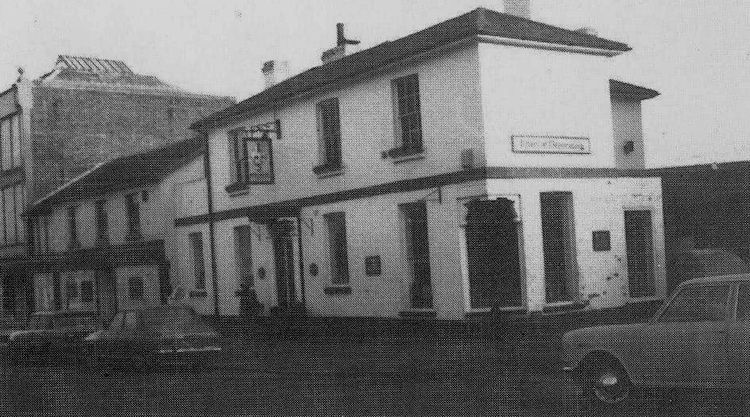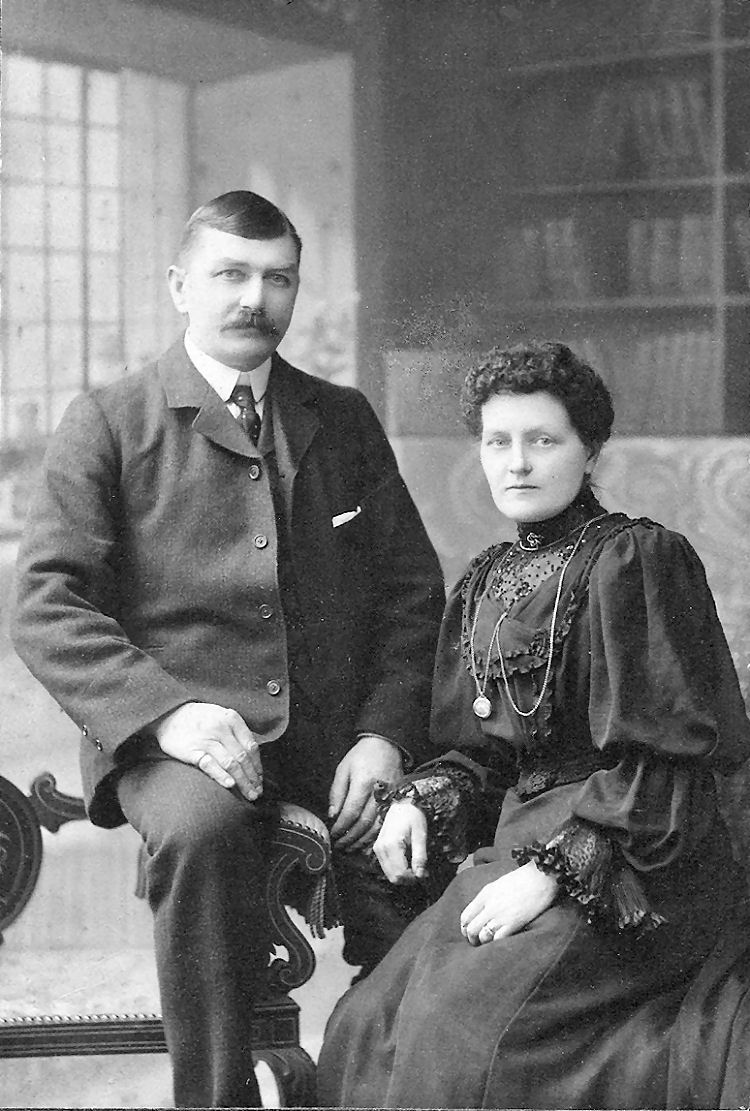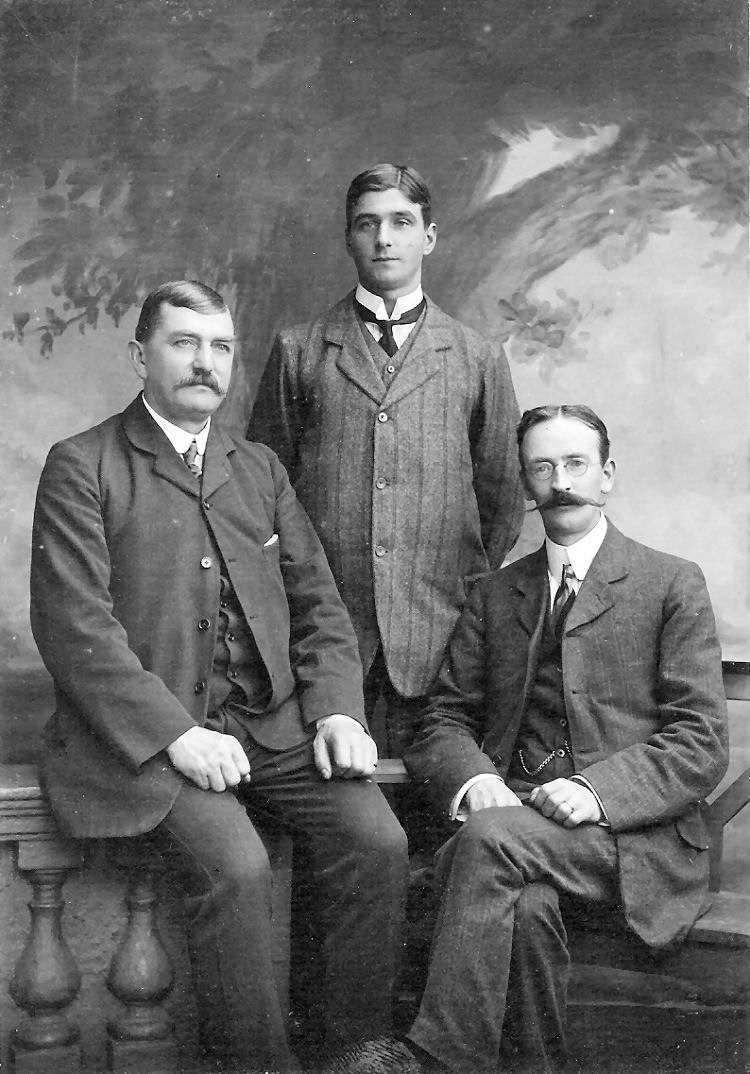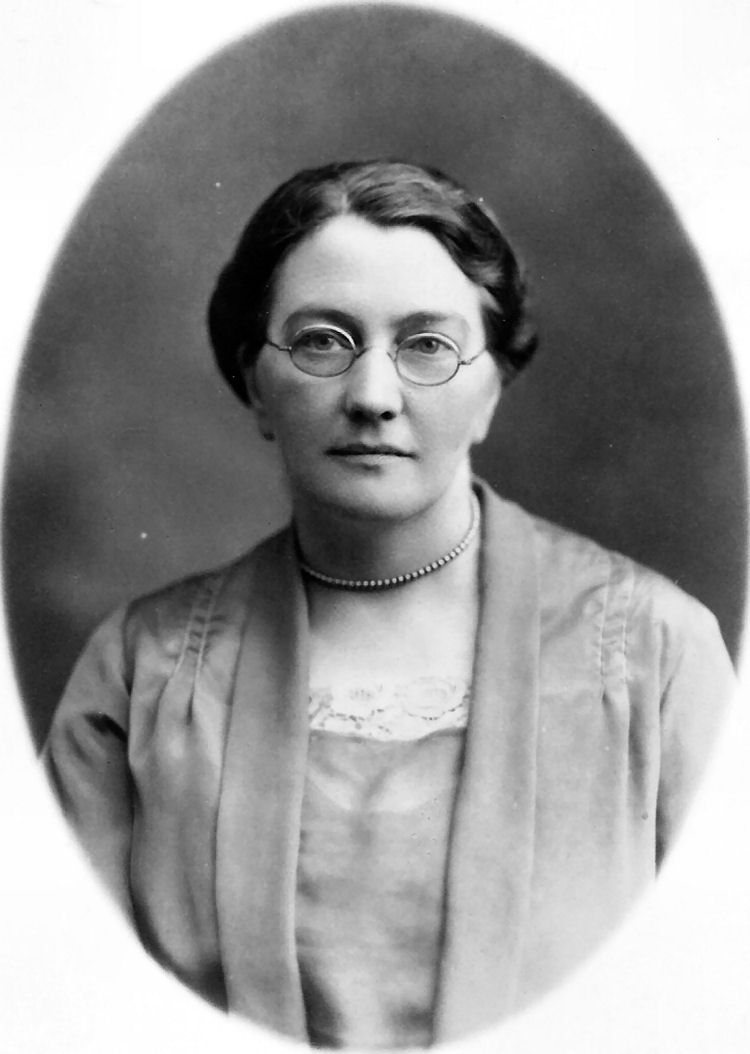|
12 Goods Station Road
Royal Tunbridge Wells

Above photo, date unknown. |

Above photo, date unknown. |
Thomas Allum was, in 1894, a 'Gentleman's Gentleman' to Lord Lonsborough
and Thomas's wife Anne was also employed in some capacity. When they left,
they were given enough renumeration to take over the "Elephant and Castle."
They had 3 children, Isabel, Ethel Caroline and Thomas Alexander.
20/07/1910 Their oldest daughter Isabel married William McEwen at Mount
Pleasant Church in Tonbridge Wells and he followed Thomas Allum as licensee.
In 1916 a newspaper cutting reports that Thomas and Anne Allum, FORMERLY
of the "Elephant and Castle," now kept by Mr & Mrs W McEwen, had received
news of their son's wounding in July.
|
Kentish Gazette, 31 July 1849.
LIDBETTER AND ANOTHER v, WINDER.
Mr. Bovill, with Mr. Hawkins, was for the plaintiffs: Mr. M. Chambers
for the defendant.
The plaintiffs are brewers, at Tonbridge Wells, and the defendant is a
grocer, at Greenwich. The action was brought to recover £101 2s. balance
of accounts for goods supplied, for rent, and for cash lent to a person
of the name of Cuckow, who keeps a public house at Tonbridge Wells,
called the "Elephant and Castle," and who had given a bill of sale to
the plaintiffs for £100, by which he made over all his furniture and
other things to them. The defendant, however, put in an execution upon
the property, and the object of the present action was to recover the
amount of the goods seized, it being the property of the plaintiffs
under the bill of sale.
His lordship told the jury the question was, was it a bona fide bill of
sale for the purpose of security to the plaintiffs; if so, they had a
right to do so; but if it were done to defeat the defendant's claim, and
no transfer of the property made, then it was wrong.
Verdict for the plaintiffs.
|
|
Maidstone Journal and Kentish Advertiser, Monday 21 October 1867.
Serious Affray at Tunbridge Wells.
Mary Ann Coyne, 26, married woman, was indicted for maliciously wounding
James Monckton and Abraham Rolfe, at Tunbridge Wells, on the 24th
August, she was also charged with inflicting grievous bodily harm and
also with a common assault.
Mr. Hay Hill prosecuted.
James Monckton a labourer, living in the Goods Station Road, Tunbridge
Wells, said on the night of 20th of August, he was at the "Castle Inn,"
about half past 6 o'clock. He went in and called for some beer, a man
almost immediately struck him without any provocation, and he returned
the blow in self-defence. Whilst they were scuffling the prisoner came
up and struck him twice on the head with a trowel, and over the ear,
several severely injuring him. One wound was an inch and a quarter in
length. He had to go to the infirmary to have the wounds sewn up. Before
the attack he had not spoken to the prisoner, or done anything whatever
to provoke her or her husband. The trowel produced was of the same kind
as the one with which the prisoner struck him.
Abraham Rolfe, a plasterer, living in the Goods Station Road, said he
was at the "Elephant and Castle," and saw the last witness enter the
house. He had been in about 2 or 3 minutes when a man on the right-hand
side of him struck him. Prosecuted returned the blow, and the prisoner
then swung a trowel about. He attempted to assist the prosecutor and the
landlord, when the prisoner struck him with a trowel across the hand. He
was laid up for 3 weeks. Witness had done nothing to provoke the
prisoner.
William Francis Hunter, the landlord, gave corroborative evidence, and
said he saw someone strike the prisoner, but it was either Monckton or
Rolfe. He did not see the prisoner use the trowl.
Superintendent Embry said he apprehended the prisoner with her husband
outside the public house. When charged at the police station the
prisoner said there was a discussion about trade unions at the house.
Some men knocked her husband about and she, having a trowel in a hand,
used it to defend herself. She knew that she hit several. She was
knocked down and kicked in the mouth. There was blood about the
prisoners lips, as if she had had a blow. Monckton was very much
exhausted, his ear was completely cut through, and he sent him to the
infirmary; the other man was also severely cut. The trowel was brought
in afterwards and the prisoner's husband admitted that it was his. The
whole of the party were covered with blood, and it seemed evident that a
very severe fight had taken place.
Henry Peerless deposed to seeing the woman strike Monckton with a trowel
and to forcing it from her.
The jury found the prisoner guilty of a common assault and she was
sentenced to 3 months' in prison.
|
|
From the Kent and Sussex Courier, Friday 13 March 1874.
Strange Case of Cruelty to a Horse.
William Barnes, described as a dealer, of no fixed residence, was
summoned for cruelly ill treating and torturing a horse, by neglecting
to give it sufficient food, and by working it in an unfit state.
Mr. W. C. Cripps, solicitor, conducted the prosecution on behalf of the
Royal Society for the Prevention of Cruelty to Animals, and after
briefly stating the facts of the case, called as the first witness P.C.
Hartnell, who said that in consequence of information he received he
went to Goods Station Road on the morning of the 16th ult. He there saw
a dark brown horse lying down in front of the "Elephant and Castle." Mr.
Worsley was sent for, and, by his directions, defendant gave the horse
some mash oats. The animal seemed a little stronger afterwards, and
after about 3 hours it was got up by means of a spring pole. It look
nearly starved, and was so weak that it could not stand. It ate the food
most ravenously.
P.C. Judge said he saw the horse after it was removed from the spot, and
saw it fall after walking about 50 yards. He asked defendant what he was
going to do with it, and he replied, "Sell it." He did sell it in
witness's presence for 10s. The horse was in a very emaciated condition,
and actually turned round to eat the straw with which the men were
rubbing its body. Witness had seen the horse that morning, and it
certainly had much improved.
Sergeant Boorman said he saw the defendant riding a horse on the morning
in question. It was then in a weak state, and seemed to stagger along.
He afterwards saw it in the Goods Station Road. Mr. Worsley, veterinary
surgeon, said he was sent for on the day in question to examine
defendants horse. It was, he found, in a debilitated state, and he
therefore advised the defendant to destroy it. It was a "living
skeleton." Defendant thought it was suffering from some abdominal
disease, but he told him it was suffering only from having insufficient
food. He had since seen the animal; there was a slight improvement, but
not so much as he expected.
Mr. William Barber, Inspector of the Royal Society for the Prevention of
Cruelty to Animals, said that he saw the horse 3 days afterwards when it
was in a wretchedly poor condition - it was covered with sores and the
ribs protruding. On the 2nd of March he saw it again, and then found it
was propped up by poles, as it could not rise after lying down.
Thomas Card, innkeeper of Southborough, said that on the 2nd of
February, the horse was brought to his stables, and it remains there 9
days. On going to and fro he's saw that defendant did not give it
sufficient food, and he spoke to defendant about it. Defending alleged
that he had not sufficient means to keep the horse as it ought to be. It
was in a very poor condition. The horse was not works during this time.
Similar evidence was given by a man named Groombridge, a fly proprietor,
to whom the defendant had appealed for hay or something to give the
horse.
Defendant said he bought the horse the day after Christmas day for £16
10s., and had said it on beans and chaff as long as he was able. He
denied that he had ill-treated the animal, but the fact was that he had
been deceived in it. The horse always ate ravenously, and he believe
that if it put inside a haystack it would eat its way out (laughter).
He did not work the horse after it began to fall away, and he merely
rode it over to Tunbridge Wells for a change, but it fell over the
dangerous kerb at the "Elephant and Castle," and he believed that the
horse "ricked" itself, so that it could not get up. If there was any
cruelty at all, he thought it must have been since. When he sold the
horse he thought it was for the purpose of being killed - in fact, he
sent for the poll-axe for the purpose, but somebody said that Ribbons
would buy it for 10s.
The defendant then called Edward Feast, a groom at Southborough, who
said he knew that defendant paid 5s. for two trustees of hay. This was
for one week only.
Thomas Middleton, corn dealer, Southborough, said that defendant
purchases four or five trusses of hay, two trustees of straw, and some
bran for the horse during the time it was that Mr. George's stable.
Mr. Worsley was here with recalled by the Bench, and he said that,
notwithstanding the horse did not show as much improvement as he should
have expected after 3 weeks care, he was still of opinion that the
original cause of weakness was insufficient food.
Mr. George was then called, and he said that during the time the horse
was at his stable it had all that was sufficient, and the defendant told
him that he was to give the horse as much food as it could eat.
Defendant also gave it bran mashes, and appeared to take every care of
it.
Mr. Worsley having examined the horse, on his return into court said he
could find no trace of disease. It was still weak, and might be pushed
down, and he adhered to his opinion that the original cause was
insufficient food. He understood that in this weak state it was driven
from Tonbridge to Maidstone and back in a 'bus five days a week.
Defendant said there was no doubt he was "took in" by the horse. It
always ate ravenously, and he only drove it from 27th December until
13th February. He also produced a bill showing it had had oats and
beans, &c, besides the hay and other food supplied from Mr. Middleton's.
The Bench said there was no doubt whatever that the horse was in a most
deplorable condition. Considering the evidence, they thought the charge
was proved, and that it was owing to the defendants neglect in not
treating it properly, more especially in respect of insufficient food.
They should find him £1, and the costs were £1 14s. 2d., and would allow
him a weak for payments. In default of payment, one month's imprisonment
with hard labour.
|
|
From the Kent and Sussex Courier, 1 July 1874.
The following licences were transformed.
The "Elephant and Castle," Goods Station Road,
from Mr. William McDonald to Mr John Clapson, late of the "Crown,"
Little Cowden, Brenchley.
|
|
From the Kent and Sussex Courier, 7 October, 1874.
Tunbridge Wells Petty Sessions. Licensing.
Mr. David Stuart applied for temporary authority to be granted him to
carry on the "Elephant and Castle"
public house, but as the transferee - Mr. John Chapman
(sic) - was not in
attendance, the application was not
granted.
|
|
From the Kent and Sussex Courier, 9 October, 1874.
Tunbridge Wells Petty sessions. Serious Assault Case.
Emily Hursell, alias "Waxwork," was charged with assaulting and beating
Ellen Hart, at Golding Street,
Tunbridge Wells, on the 30th ult.
Superintendent Embery said he was not sure that the case was not one of
a more serious nature than a
common assault. The woman after the assault was taken to the Infirmary,
where she was attended by Dr.
Rix. As the charge was one of common assault only, the doctor was not in
attendance. There worships
directed that Dr. Rix should be sent for.
Complainant said:- I am the wife of Thomas Hart, a costermonger, and
live in Basinghill Street. On the
evening of 30th September, I was in the "Elephant and Castle," where
defendant asked me to stand
something to drink. I said I should not, as she never gave me anything.
We had a row there, and we came
to blows. We had a scramble and I fell, and defendant kicked me. About
an hour afterwards I went into Gas
Lane, where defendant came up to me and struck me on the temple with
something she had in her hand. I
felt something cut me, but could not see what it was, as I was covered
with blood. She struck me several
times in the face afterwards, but did not mark me. I asked two men,
named Head, to help me to the
Infirmary, and they did so. When I was there I lost a great deal of
blood, and was unable to be moved for
an hour and a half. Mr. Rix said it was a very bad cut, and asked me who
did it. At the "Elephant and
Castle," defendant said that she often paid for drinks for me, and I
replied to her, and we both had a strike.
I should not have made any complaint of what occurred at the "Elephant
and Castle" had she not struck me
in Gas Lane. I left the "Elephant and Castle" an hour and a half after
defendant did. I did not go to her
house, but was standing near Mrs. Chapman's fence. I did not say
anything to her, or call her names.
Cross-examined by defendant:- I did not throw a glass of ale at you at
the "Elephant and Castle." I did not
go near your house.
Defendant said that complainant came to her house, called her a rotten
thing, and struck her.
Mr. B. Rix, surgeon at the Tunbridge Wells Infirmary, said:- On the
evening of the 30th ult., about 8 o'clock,
Mrs. Hart was brought to the Infirmary, and she was bleeding from a
wound on the left temple. It was a
small cut, which had been done by a blunt instrument. It might have been
done by a key, a ring, or a stone.
She lost a great deal of blood. There was no immediate danger to be
apprehended from the wound, except
erysipelas or anything of that sort set in.
By the Chairman:- The wounds might have been caused by a fall. It would
have been caused as easily by a
fall as by a blow from a stone.
Mr. Mills:- You mean that if she had fallen on a stone it would have
been much about the same.
Witness:- I do.
Defendant said she had nothing in her hand which would cause the wound.
Complainant fell down several
times. After the row at the "Elephant and Castle," she (defendant) went
to her home, but defendant
followed her, threw off her shawl, and pitched into her, taking a hold
of her by the hair of the head, and
striking her. She called Mrs. Bailey, the wife of a greengrocer, who
said that on Wednesday night, as she
was passing defendant's house, she saw complainant looking into the
window of defendants house. They
went together to the top of the lane, where they met the defendant, who
did not speak, but complainant
threw off her shawl, and said, "Now, if you can fight me, fight me."
Defendant did not accept the challenge,
but they both turned around and went down the lane.
John Peerless, who keeps a shop in Basinghall Lane, said that on the
night in question, on looking outside
his shop, he saw Mrs. Hart and defendant together, Mrs. Hart having hold
of defendants hair with both
hands. They were parted, and Mrs. Hart danced and jumped, and said she
could "whack a thing like that
any day." Defendant cried, and said she should make Mrs. Hart pay for
it. They had another turn, and Mrs.
Hart getting the worst of it, cried and threatened what she would do if
she had daylight to go at the
defendant in. He knew from his own knowledge that Mrs. Hart had been
drinking for several days.
James Sullivan, and Irish comic singer, stated that on Wednesday night
he was returning from 'business' to
his lodgings in Gas Lane, where he saw Mrs. Hart strike the defendant.
Complainant struck defendant a
second time, who then took her own part.
In reply to the Bench, witness said it was after the first blow was
struck that the complainant bled, but he
did not see where the blood came from.
The Chairman said the magistrates were of opinion that both sides were
much to blame, and that the
complainant had conducted herself extremely ill, and in a very insulting
and provoking manner. They were
of opinion that defendant must have used some weapon or another to
inflict such a dangerous wound on
such a dangerous part of the person, and they, therefore, sentenced her
to a month's imprisonment with
hard labour, without the option of a fine.
|
|
From a paper dated, Friday, 11 August, 1916.
Wounded. Tunbridge Wells.
Private B. A. Allum (Australians.)
Mr. and Mrs. T. Allen, formerly of the "Elephant and Castle," Goods
Station Road, Tunbridge Wells, have received news from their son Private
T. A. Allen, Australian Imperial Forces, that he has been wounded.
Private Allum is an old Ardingly College boy, and is well known in
Tunbridge Wells, where his sister and brother-in-law, Mr. and Mrs. W.
McEwan, keep the "Elephant and Castle." The letter was as follows:-
I don't know if you received the P.C. saying I was in hospital, as I had
it sent to the Tunbridge Wells address, so I am writing to let you know
I was wounded on the night of July 27th down at the push. chest. I got a
bullet through the chest. Please to say that it went right through, so
the wound is not so bad as it might have been, and am pleased to tell
you that I am getting along A1. and hope to be in a place where you can
come and pay me a visit.
It is terrible down there where the advance is going on. Our artillery
must have given the Germans an awful time. You can't walk down there
without stepping in a shell hole. No wonder a lot of the Germans were so
willing to give themselves up. They must have had the time of their
lives. Well, they are getting a little of their own back, so perhaps it
will do them good.
|
09/02/1922 Thomas Allum died aged 64 of prostate and bladder cancer (and
other causes I can't decipher).
William McEwen had a long illness before his death at the pub
(11/08/1926) and during that time, Isabel ran the business.

Above photo showing licensee Thomas Allum and his wife Anne, kindly sent by D Oliver.
Circa 1910. |

Thomas Allum, his son Thomas Alexander, and William McEwen his
son-in-law. Circa 1910, kindly sent by D Oliver. |

Above photo showing licensee Isabel McEwen (Nee Allum), circa 1926.
Kindly sent by D Oliver.
|
|
Kent & Sussex Courier, Friday 6 December 1974.
£20 fine for pub damage.
Patrick O'Malley, age 39, of 28 York Road, Tunbridge Wells, was
fined £20 by the town's magistrates' on Monday for smashing to plate
glass windows at the "Elephant and Castle" public house.
The court was told by Mr. Brendan Kenny, prosecuting, that on
November 2nd the landlady, Mrs. Beryl Franklin, heard the sound of a
window breaking in the public bar. She ran outside to see O'Malley
throwing a bottle through the saloon bar window.
O'Malley, who pleaded guilty, told the court he had been drinking
and did not realise what he was doing.
|
This was owned by the Kelsey brewery but was derelict when the late Peter
Hoare opened Peter Hoare interior designs in 1978, now The Curtain Shop.
(2023)
LICENSEE LIST
HUNTER William 1851+ (age 39 in 1851 ) )
TWORT James 1855+
LANGRIDGE William 1862+
HUNTER William Francis 1867-71+ (age 42 in 1871 ) )
MACDONALD/McDONALD William to May/1874


 CLAPSON John July/1874+
CLAPSON John July/1874+

CURTIS John 1881+ (also blacksmith age 49 in 1881 ) )
CARTER John 1882+
TIDY George 1891+ (age 40 in 1891 ) )
WESTON E Mr to Apr/1892
MARKS H Mr Apr/1892+
ALLUM Thomas 1901-13+ (age 43 in 1901 ) )

McEWEN William 1918-26
McEWEN Isabel Mrs 1926-30+
MUDDIMAN R 1938+
HOARE Jo & Peter 1970s+
FRANKLIN Beryl 1974+
https://pubwiki.co.uk/ElephantCastle.shtml
http://www.closedpubs.co.uk/elephantcastle.html
 From the Kelly's Directory 1903 From the Kelly's Directory 1903
 Census Census
 Thanet Advertiser Thanet Advertiser
 Kent
and Sussex Courier Kent
and Sussex Courier
|




